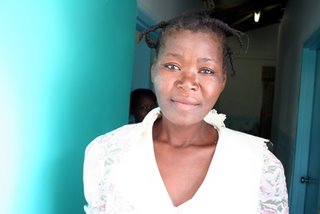NEW SEASON
The Time-Space of Here-Now
Behold the times are changing. Or the temperature is forcing changes in the "proper" place of men. Now is the time of Nintendo-game playing, NBA watching, and beer guzzling, inside. Jennifer reports that the “kissy men” are no longer stationed at the entrance to 674 Academy Street. They have forsaken the cleverly placed bottle-opener mounted at the entrance to the store next door. They have gone inside to leer through their beer at something other than my wife.
I know the place is the only thing that’s new; their everyday activities are still much the same. It’s hard to know who to be angry at: these men only know the rules of the game, they don’t know it’s possible to only live. Alcohol, like capitalist hegemony, is a powerful drug of social control. And these men are largely unemployed to the point of being something other than white. Why should we be surprised at psychological violence toward women when “It’s Hard Out Here for a Pimp” won an Academy Award this year? When clothing advertisements tell us: “Who needs a brain when you got these?” When women are essentially sexual vessels – weaker objects, to be possessed or consumed?
It makes me mad to know that by April, the kissy men will be back to making Jennifer wish she lived in Ohio where it’s still a surprise when men openly intimidate women as they enter their homes. But until then we will enjoy the sounds and scents of our antique whistling heater, the trilling of the opera singer two floors above us (we have to keep the windows open because the heater makes our air so hot), the taste of the pumpkin pies that are so seasonally cheap at Fine Fare, the beaming face of our Cuban next door neighbor, the repetition of the stories told by the Irish doorman emeritus who haunts our building with a lilt, the barking of the dogs who I wish lived at the far end of Long Island, colors flying (?) over passed boards, “normal” cholesterol tests, 75 cent coffee made without asking by an all-night coffee seller who thinks Ohio would be more like the paradise he imagined (on a night when the wind air is much colder that the dusty wind in Egypt): the smell of the earth as it begins to recompose our return into the cycle of life-death. This is a good time to Live, the place what surrounds us is emptying out, giving us space to breathe. Here and now we have a nice place on Academy Street next to Inwood Hill.
The Time-Space of Here-Now
Behold the times are changing. Or the temperature is forcing changes in the "proper" place of men. Now is the time of Nintendo-game playing, NBA watching, and beer guzzling, inside. Jennifer reports that the “kissy men” are no longer stationed at the entrance to 674 Academy Street. They have forsaken the cleverly placed bottle-opener mounted at the entrance to the store next door. They have gone inside to leer through their beer at something other than my wife.
I know the place is the only thing that’s new; their everyday activities are still much the same. It’s hard to know who to be angry at: these men only know the rules of the game, they don’t know it’s possible to only live. Alcohol, like capitalist hegemony, is a powerful drug of social control. And these men are largely unemployed to the point of being something other than white. Why should we be surprised at psychological violence toward women when “It’s Hard Out Here for a Pimp” won an Academy Award this year? When clothing advertisements tell us: “Who needs a brain when you got these?” When women are essentially sexual vessels – weaker objects, to be possessed or consumed?
It makes me mad to know that by April, the kissy men will be back to making Jennifer wish she lived in Ohio where it’s still a surprise when men openly intimidate women as they enter their homes. But until then we will enjoy the sounds and scents of our antique whistling heater, the trilling of the opera singer two floors above us (we have to keep the windows open because the heater makes our air so hot), the taste of the pumpkin pies that are so seasonally cheap at Fine Fare, the beaming face of our Cuban next door neighbor, the repetition of the stories told by the Irish doorman emeritus who haunts our building with a lilt, the barking of the dogs who I wish lived at the far end of Long Island, colors flying (?) over passed boards, “normal” cholesterol tests, 75 cent coffee made without asking by an all-night coffee seller who thinks Ohio would be more like the paradise he imagined (on a night when the wind air is much colder that the dusty wind in Egypt): the smell of the earth as it begins to recompose our return into the cycle of life-death. This is a good time to Live, the place what surrounds us is emptying out, giving us space to breathe. Here and now we have a nice place on Academy Street next to Inwood Hill.




